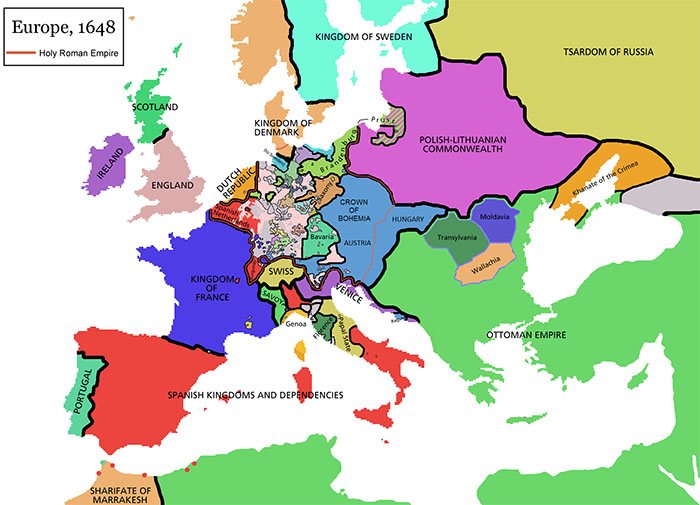![]()
During the seventeenth century, England and France underwent divergent political (and economic) evolutions. In politics, while absolutism emerged powerful in France, a constitutional system developed in England; and in economics, while mercantilism emerged in France, capitalism expanded in England. These contrasting political and economic trends set the stage for over two centuries of rivalry, usually played out as war, between France and England and between conservative and liberal political forces throughout the Western world.
Liberals, such as John Locke (1632-1704), consistently championed the English constitutional system as a model. See Locke's Two Treatises of Government (1689) or An Essay Concerning Human Understanding (1690). Influential conservatives, such as Edmund Burke (1729-1797), supported the divine rights of a conservative monarchy. See Burke's Reflections on the Revolution in France (1790).
Liberals, such as Adam Smith (1723-1790) in his An Inquiry in the Nature and Causes of the Wealth of Nations (1776) promoted a laissez-faire, capitalist economic system as supposedly existed in England. Mercantilists promotes government regulation of a nation's economic policy to maximize exports and minimize imports in an effort to achieve a positive balance of trade and the accumulation of gold reserves.
Other important events of the seventeenth century
The Thirty Years War (1618-1648) started as a struggle between protestants and Catholics on German territory but morphed into a greater European power struggle between France, Spain, Sweden and Austria. Widespread destruction and an enormous loss of life resulted throughout Central Europe.
The colonization of North America continued apace with England, France, Spain and Netherlands participating. The century saw the introduction of African slaves into the North American colonies.
The "General Crisis" is a history theory propounded by several historians, including most recently Geoffrey Parker in The General Crisis of the Seventeenth Century (1997), about the series of calamitous events that struck the world in the seventeenth century. See my website for a list of some of the events and some resources for further study.
![]()
Some recommended online lectures and websites
- At Boundless World History, see the section on The Rise of Nation-States (well done).
- Gerhard Rempel, The Thirty Years' War (*.PDF)
- English Civil War Timeline
- Wikipedia even has an article on the 17th century!
- The Wikipedia entry on the Thirty Years' War is very well done.
- The Thirty Years' War
- Louis XIV (history.com)
- For extra credit please suggest to your instructor a relevant website for this unit of the course. Send the title of the site, the URL and a brief explanation why you find the information interesting and applicable to the material being studied in this unit.
